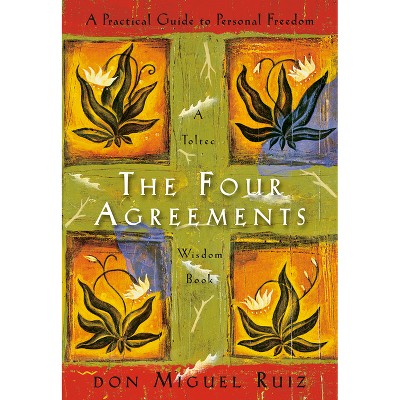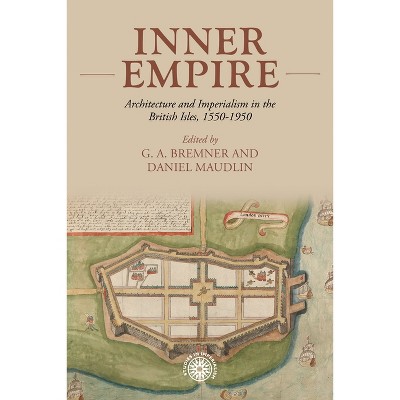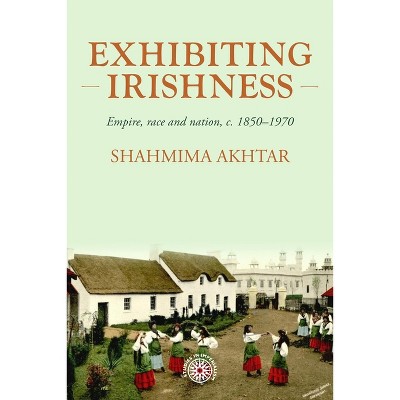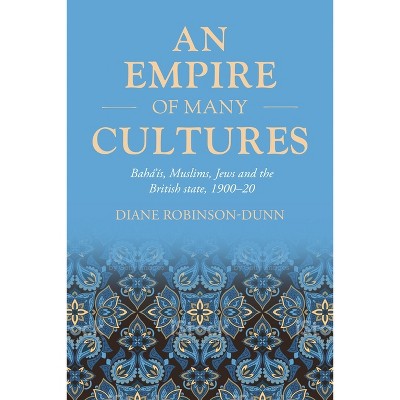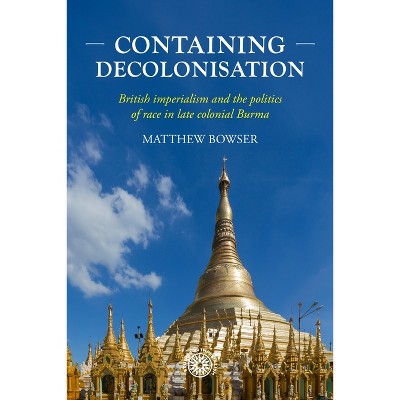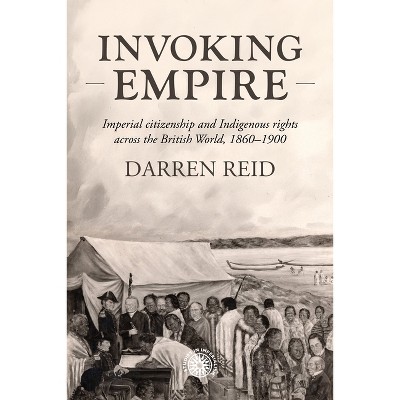Negotiating Relief and Freedom - (Studies in Imperialism) by Oscar Webber (Paperback)

About this item
Highlights
- Negotiating relief and freedom is an investigation of short- and long-term responses to disaster in the British Caribbean colonies during the 'long' nineteenth century.
- About the Author: Oscar Webber has been previously temporarily employed at the University of Leeds, The London School of Economics and has held a research fellowship at the Centre for Latin American and Caribbean Studies at the University of London
- 224 Pages
- History, Caribbean & West Indies
- Series Name: Studies in Imperialism
Description
About the Book
This book investigates both short- and long-term responses to disaster in the British Caribbean. It is the first to examine the informal negotiations that took place on the ground between the colonial authorities and the African-Caribbean population, and the formal negotiations undertaken by colonies as they sought financial aid from Parliament.Book Synopsis
Negotiating relief and freedom is an investigation of short- and long-term responses to disaster in the British Caribbean colonies during the 'long' nineteenth century. It explores how colonial environmental degradation made their inhabitants both more vulnerable to and expanded the impact of natural phenomena such as hurricanes, earthquakes, and volcanic eruptions. It shows that British approaches to disaster 'relief' prioritised colonial control and 'fiscal prudence' ahead of the relief of suffering. In turn, that this pattern played out continuously in the long nineteenth century is a reminder that in the Caribbean the transition from slavery to waged labour was not a clean one. Times of crisis brought racial and social tensions to the fore and freedoms once granted, were often quickly curtailed.From the Back Cover
Hurricanes, earthquakes and volcanic eruptions have always been defining aspects of life in the Caribbean. Negotiating relief and freedom is the first long durée assessment of how those controlling and those living under British colonialism responded to them during the immense changes of the long nineteenth century.
The book provides a unique window on the tensions and continuities emerging in the transition from slavery to free labour. It reveals an interconnected web of policy decisions, prejudices and colonial environmental degradation that kept the colonies not just dependent on Britain but also made their inhabitants more vulnerable to disaster. Recovery from these devastating events was often a long, drawn-out process filtered through intertwined racial and economic concerns that prioritised shoring up white minority control and 'fiscal prudence' ahead of the relief of suffering. Freedoms gained since the end of slavery could be quickly withdrawn as colonial officials sought to assert control over chaos, but reliant as they were on non-white labour and constrained by the Colonial Office, they did not have an entirely free hand. Instead, they found themselves drawn into both formal and informal negotiations to balance the restoration of extractive industry against seeking to constrain governmental largesse.
This history serves as a stark reminder not only of the role human created conditions play in creating and worsening the impacts of disasters but also of how relief efforts are rarely, if ever, solely humanitarian.
Review Quotes
Negotiating relief and freedom provides a thorough and rich study. Webber introduces a more profound concern with the political, economic, and social dimensions of rebuilding society in the wake of disaster.
--Rasmus Christensen, New West Indian Guide
About the Author
Oscar Webber has been previously temporarily employed at the University of Leeds, The London School of Economics and has held a research fellowship at the Centre for Latin American and Caribbean Studies at the University of LondonShipping details
Return details
Trending Non-Fiction





